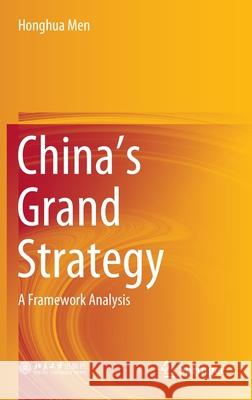China's Grand Strategy: A Framework Analysis » książka
topmenu
China's Grand Strategy: A Framework Analysis
ISBN-13: 9789811542565 / Angielski / Twarda / 2020 / 243 str.
China's Grand Strategy: A Framework Analysis
ISBN-13: 9789811542565 / Angielski / Twarda / 2020 / 243 str.
cena 362,27
(netto: 345,02 VAT: 5%)
Najniższa cena z 30 dni: 346,96
(netto: 345,02 VAT: 5%)
Najniższa cena z 30 dni: 346,96
Termin realizacji zamówienia:
ok. 16-18 dni roboczych.
ok. 16-18 dni roboczych.
Darmowa dostawa!
Kategorie BISAC:
Wydawca:
Springer
Język:
Angielski
ISBN-13:
9789811542565
Rok wydania:
2020
Wydanie:
2020
Ilość stron:
243
Waga:
0.59 kg
Wymiary:
23.39 x 15.6 x 1.75
Oprawa:
Twarda
Wolumenów:
01
Dodatkowe informacje:
Wydanie ilustrowane











